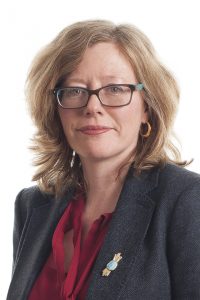Presentations
Follow reaction and comment throughout the day at our Storify timeline.
Morning plenary session
- Scientific ecosystems and research reproducibility – Marcus Munafo (University of Bristol)
- Walking the talk of open research and open innovation in practice – Simon Tanner (King’s College London)
Parallel sessions
- Open publishing models for the humanities – Martin Paul Eve (Birkbeck, University of London)
- The role of journals and publishers in sharing research data – Iain Hrynaszkiewicz (Springer Nature)
- Journeys in reproducible research and challenges for institutions, disciplines and the individual – Jonathan Tedds (University of Leicester)
- The challenges of Digital Humanities: common requirements for humanities researchers – James O’Sullivan (University of Sheffield)
- Openness across the research lifecycle: publication, dissemination and impact – Sierra Williams (PeerJ)
- 50 years of social science data curation at the UK Data Archive: maximising opportunities for data reuse – Louise Corti (UK Data Archive)
Panel discussion and closing remarks
Bite-size videos
Marcus Munafo and Simon Tanner summarise the key messages of their plenary talks, and several of our delegates tell us about their Open Resolutions.
Speakers
Louise Corti, Associate Director, UK Data Archive. Louise is Director of Collections Development for the UK Data Service, and helped set up the original research data policy for ESRC in 1996. Her current research activities are  focused around standards and technologies for ingesting, archiving and presenting digital social science data, particularly using open source infrastructures and tools. She is co-author of Managing and Sharing Research Data: A Guide to Good Practice (2014) and speaks regularly on data management and data sharing.
focused around standards and technologies for ingesting, archiving and presenting digital social science data, particularly using open source infrastructures and tools. She is co-author of Managing and Sharing Research Data: A Guide to Good Practice (2014) and speaks regularly on data management and data sharing.
Martin Paul Eve, Professor of Literature, Technology and Publishing, Birkbeck,  University of London. In addition to his academic activities, Martin is founder of the Open Library of Humanities and of several Open Access journals. He is a well-known advocate of Open Access, who has been active in policy circles and public debate, and gave evidence to the UK’s Government panel on OA in 2013. [Photo by Martin Paul Eve, CC BY]
University of London. In addition to his academic activities, Martin is founder of the Open Library of Humanities and of several Open Access journals. He is a well-known advocate of Open Access, who has been active in policy circles and public debate, and gave evidence to the UK’s Government panel on OA in 2013. [Photo by Martin Paul Eve, CC BY]
Roberta Gilchrist, Research Dean for Heritage and Creativity and Professor of  Archaeology, University of Reading. Roberta has conducted research and published extensively on the archaeology of medieval religion and gender. She has led several digital humanities projects in medieval archaeology and has published an open access monograph. [Photo © University of Reading 2015]
Archaeology, University of Reading. Roberta has conducted research and published extensively on the archaeology of medieval religion and gender. She has led several digital humanities projects in medieval archaeology and has published an open access monograph. [Photo © University of Reading 2015]
Iain Hrynaszkiewicz, Head of Data Publishing, Springer Nature. His team help develop  research data publishing policies, features and services across Springer Nature publications. He is also publisher of Nature Research Group’s Scientific Data journal. In 2015 he launched Palgrave Communications, a multidisciplinary open access journal for humanities and social sciences and helped develop Palgrave’s open access books programme. Iain previously worked as Outreach Director at Faculty of 1000 and spent 7 years at the first open access publisher BioMed Central as an Editor and Publisher of multidisciplinary and evidence-based medicine journals and databases. He regularly leads and contributes to research/publishing community initiatives and working groups related to data sharing and reproducibility. He has published numerous articles, related to data sharing, open access, open data and the role of publishers in reproducible research. [Photo by Iain Hrynaszkiewicz, CC BY]
research data publishing policies, features and services across Springer Nature publications. He is also publisher of Nature Research Group’s Scientific Data journal. In 2015 he launched Palgrave Communications, a multidisciplinary open access journal for humanities and social sciences and helped develop Palgrave’s open access books programme. Iain previously worked as Outreach Director at Faculty of 1000 and spent 7 years at the first open access publisher BioMed Central as an Editor and Publisher of multidisciplinary and evidence-based medicine journals and databases. He regularly leads and contributes to research/publishing community initiatives and working groups related to data sharing and reproducibility. He has published numerous articles, related to data sharing, open access, open data and the role of publishers in reproducible research. [Photo by Iain Hrynaszkiewicz, CC BY]
Marcus Munafò, Professor of Biological Psychology, University of Bristol. As part of the  Tobacco and Alcohol Research Group at the University of Bristol Marcus has pioneered an Open Science approach, incorporating Open Materials, Open Data and Open Access. He has written and presented on using Open Science methods to improve the effectiveness and quality of research.
Tobacco and Alcohol Research Group at the University of Bristol Marcus has pioneered an Open Science approach, incorporating Open Materials, Open Data and Open Access. He has written and presented on using Open Science methods to improve the effectiveness and quality of research.
Phil Newton, Research Dean for Environment, University of  Reading. In addition to being Research Dean for Environment at the University of Reading, Phil is the senior management Sponsor for Open Access and Research Data Management in the University. He has been active in oceanographic research, spent several years developing environmental science content at Nature, and more recently was Director of Science at NERC. [Photo © University of Reading 2015]
Reading. In addition to being Research Dean for Environment at the University of Reading, Phil is the senior management Sponsor for Open Access and Research Data Management in the University. He has been active in oceanographic research, spent several years developing environmental science content at Nature, and more recently was Director of Science at NERC. [Photo © University of Reading 2015]
James O’Sullivan, Digital Humanities Research Associate, Humanities Research  Institute, University of Sheffield. As part of the HRI, James conducts research and teaching in the Digital Humanities. He has research interests in aspects of digital culture and use of computational methods in research. He is the founding editor of Digital Literary Studies, and co-editor of Reading Modernism with Machines (2016).
Institute, University of Sheffield. As part of the HRI, James conducts research and teaching in the Digital Humanities. He has research interests in aspects of digital culture and use of computational methods in research. He is the founding editor of Digital Literary Studies, and co-editor of Reading Modernism with Machines (2016).
Simon Tanner, Professor of Digital Cultural Heritage and Pro Vice Dean (Impact &  Innovation), Arts and Humanities, King’s College London. Simon’s research interests are focused on the economic realities and Open Access/Content strategies for digital content in cultural heritage. He speaks widely on matters pertaining to the digital humanities, impact, innovation and open content. He Tweets @SimonTanner and blogs at: http://simon-tanner.blogspot.com/.
Innovation), Arts and Humanities, King’s College London. Simon’s research interests are focused on the economic realities and Open Access/Content strategies for digital content in cultural heritage. He speaks widely on matters pertaining to the digital humanities, impact, innovation and open content. He Tweets @SimonTanner and blogs at: http://simon-tanner.blogspot.com/.
Jonathan Tedds, @jtedds, Senior Research Fellow,  University of Leicester and Director, Research and Educational Data (RED) Informatics Ltd. Jonathan has research interests in health, environmental, astrophysics and research data informatics. He has been instrumental in developing and implementing Open Source software solutions across a range of public health, environmental health and multi-disciplinary research areas, including the BRISSKit biomedical research software platform and virtual observatory solutions for astronomical research. Jonathan is a passionate advocate for best practice in management and communication of research data, and has been involved in a number of projects with members of the data curation and publishing communities. Jonathan is Editor-in-Chief of the Open Health Data Journal, Associate Editor of Geoscience Data Journal, and Advisory Board Member of BioSharing.
University of Leicester and Director, Research and Educational Data (RED) Informatics Ltd. Jonathan has research interests in health, environmental, astrophysics and research data informatics. He has been instrumental in developing and implementing Open Source software solutions across a range of public health, environmental health and multi-disciplinary research areas, including the BRISSKit biomedical research software platform and virtual observatory solutions for astronomical research. Jonathan is a passionate advocate for best practice in management and communication of research data, and has been involved in a number of projects with members of the data curation and publishing communities. Jonathan is Editor-in-Chief of the Open Health Data Journal, Associate Editor of Geoscience Data Journal, and Advisory Board Member of BioSharing.
Sierra Williams, Community Manager, PeerJ. PeerJ is a progressive Open Access  publisher of research in the life sciences and computer science. It publishes both peer-reviewed journals and PeerJ Preprints, an innovative ‘preprint server’ which enables rapid communication of research. PeerJ supports an open peer review system that affords recognition to academic peers for constructive engagement with published research. Sierra is co-author of Communicating Your Research with Social Media: A Practical Guide to Using Blogs, Podcasts, Data Visualisations and Video. She tweets @sn_will.
publisher of research in the life sciences and computer science. It publishes both peer-reviewed journals and PeerJ Preprints, an innovative ‘preprint server’ which enables rapid communication of research. PeerJ supports an open peer review system that affords recognition to academic peers for constructive engagement with published research. Sierra is co-author of Communicating Your Research with Social Media: A Practical Guide to Using Blogs, Podcasts, Data Visualisations and Video. She tweets @sn_will.
All photos are courtesy of speakers. Credits and licence information are provided where known.

 RSS - Posts
RSS - Posts